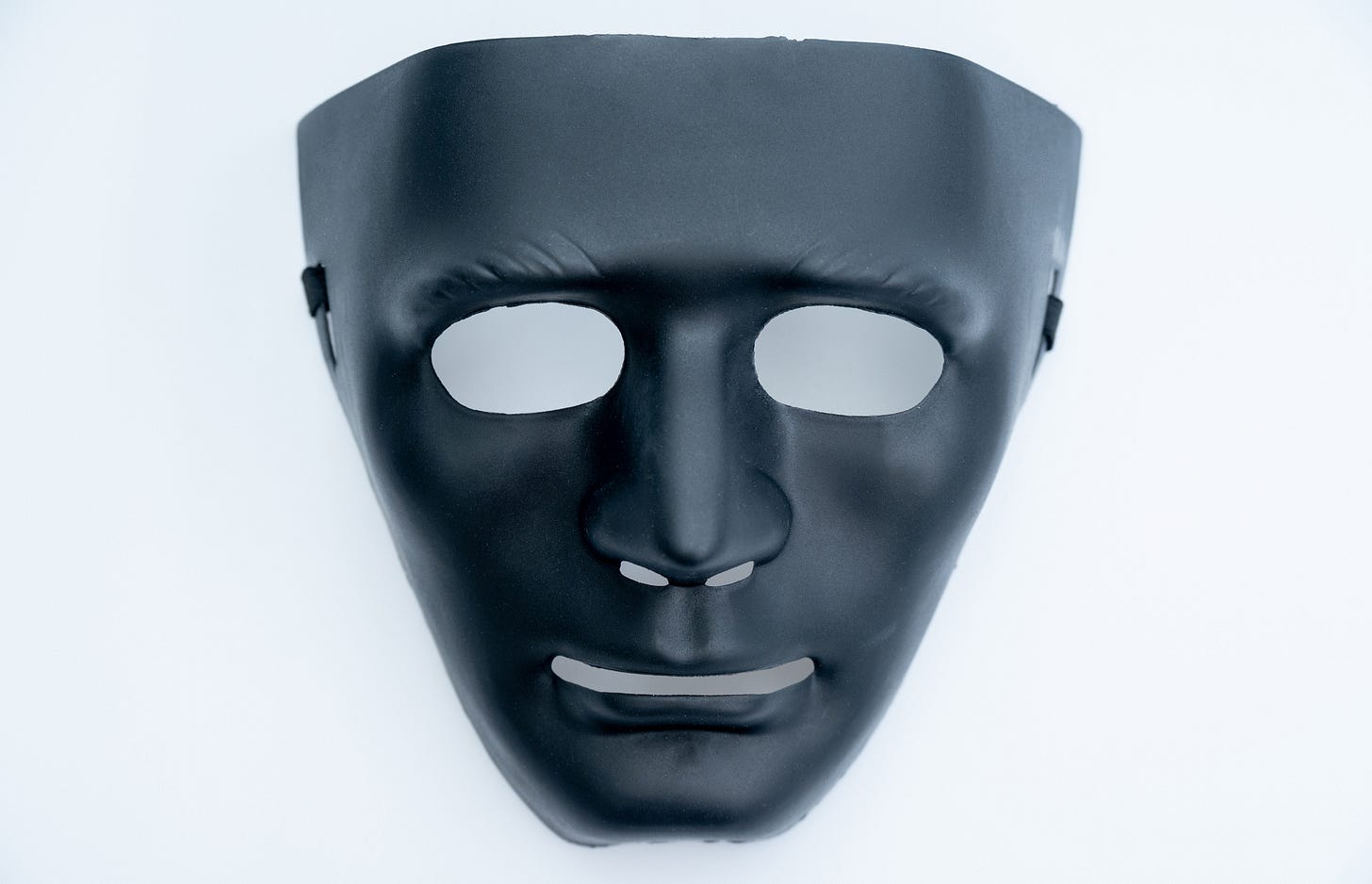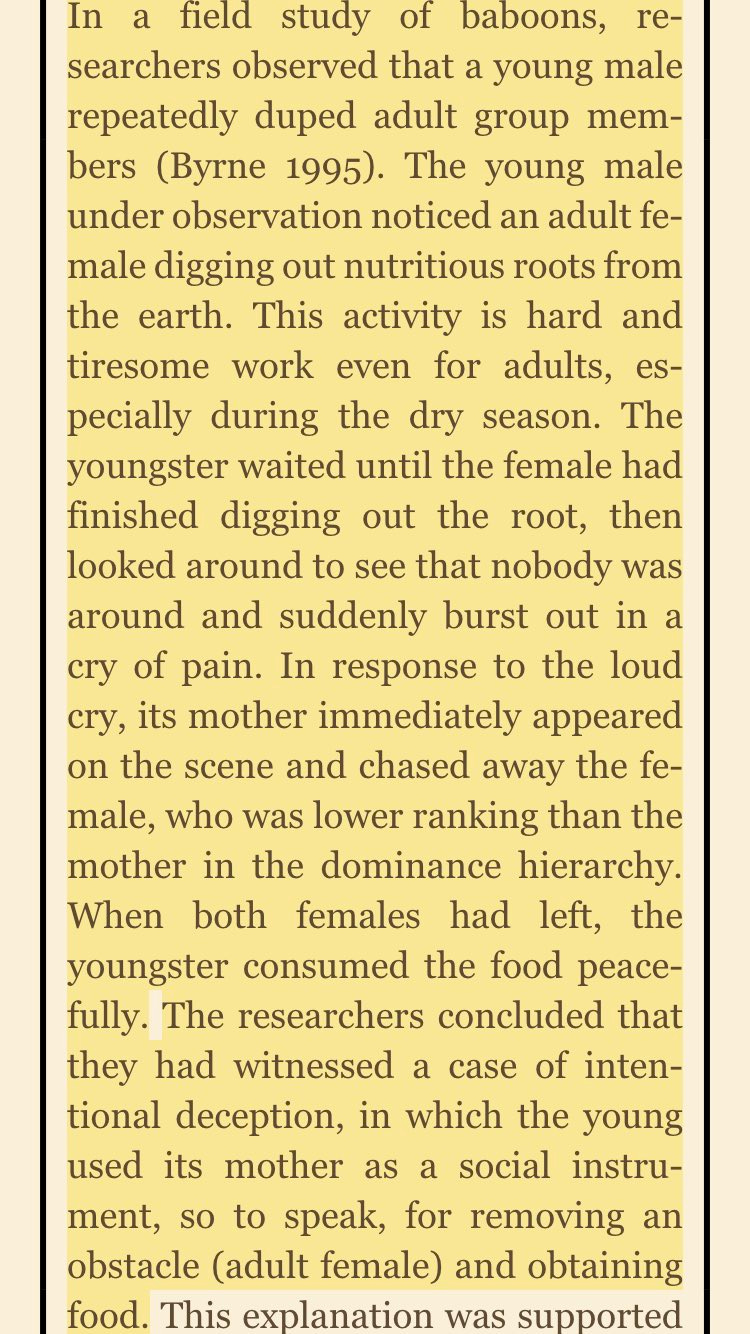Victim Signaling and Dark Triad Personality Traits
How people with dark personalities use victimhood as a strategy
Here is an interesting interaction involving a group of baboons, reported in a book titled Machiavellianism: The Psychology of Deception:
Humans will also feign victimhood as a strategy to obtain rewards. A 2020 study found people who signal victimhood (and virtue) are more likely to have Dark Triad personality traits.
The Dark Triad comprises narcissism (entitled self-importance), Machiavellianism (strategic exploitation and duplicity) and psychopathy (callousness and disregard for others). People with Dark Triad traits can be seductive.
A 2014 study found that women rated the same man as more attractive when he had Dark Triad traits. The Dark Triad man was about one standard deviation more attractive than an ordinary man. People (especially young males) have asked me for reasons why some women like guys who are high on these traits. The “bodyguard hypothesis” is a reasonable candidate. In the ancestral environment, women were in the difficult position of trying to obtain a male partner who had the capacity for antagonism and aggression, but would only direct it toward those who threatened them or their offspring. Women had to walk the tightrope of pairing with a man capable of violence, selfishness, and cruelty, but would channel these qualities in ways that would benefit and protect their loved ones and their offspring. Today, some women, when choosing a male partner, overshoot (choosing partners high in DT traits rather than moderate levels) and end up in lethal situations. It’s similar to sugar: small amounts can be adaptive, but if you over-consume (which is easy to do in the modern environment) you will harm rather than help your evolutionary fitness.
In psychologist Justin Lehmiller’s book Tell Me What You Want, he reveals the most fantasized-about superhero among women is Batman. In contrast, gay men preferred Superman and Captain America. One possible reason that women like Batman is that he would score higher on Dark Triad traits compared with other superheroes.
A 2015 study found that although narcissistic males do not make good partners, women aged 18 to 28 desire them more than other men. The researchers asked women about their dating experience and desire for marriage. They wanted to see whether these factors influenced their attraction to narcissistic men.
They found that young women with more dating experience and a greater desire for marriage were more attracted to narcissistic men. They write, “Despite future long-term mating desires which are unlikely to be achieved with a narcissistic male and possession of substantial mate sampling experience, females view the narcissistic male as a suitable partner.”
Dark Triad traits appear to be advantageous in some contexts.
In the 2020 study, titled Signaling Virtuous Victimhood as Indicators of Dark Triad Personalities, the authors suggest that Machiavellianism, narcissism, and psychopathy might be beneficial for obtaining resources.
In their introduction, they acknowledge that being viewed as a victim can lead to a loss of esteem and respect. But, they continue, in modern Western societies being a victim doesn’t always lead to undesirable outcomes. Sometimes, being a victim can increase one’s social status. And justify one’s claim to material resources.
They argue that “contemporary Western democracies have become particularly hospitable environments for victim signalers to execute a strategy of nonreciprocal resource extraction.”
One reason: Strong egalitarian values lead many in the West to believe that any differences in outcomes are illegitimate.
Another is that one of our key values is the alleviation of human suffering. Saying that you don’t have as much as others and that you are suffering for it, can be a shrewd way to obtain material resources.
The researchers examine victim signaling, which they define as “a public and intentional expression of one’s disadvantages, suffering, oppression, or personal limitations.” They also examine virtue signaling, defined as “symbolic demonstrations that can lead observers to make favorable inferences about the signaler’s moral character.”
They argue that signaling both victimhood and virtue would maximize one’s ability to extract resources. People feel the most sympathy for a victim who is also a good person.
The researchers developed a Victim Signaling Scale, ranging from 1 = not at all to 5 = always. It asks how often people engage in certain activities. These include: “Disclosed that I don’t feel accepted in society because of my identity.” And “Expressed how people like me are underrepresented in the media and leadership.”
They found that Victim Signaling scores highly correlated with Dark Triad scores (r = .35). This association held after controlling for gender, ethnicity, income, and other factors that might make people vulnerable to mistreatment.
Participants also completed a questionnaire that measured Virtue Signaling. They rated the extent to which they agreed or disagreed with statements about moral traits like being fair, compassionate, and honest. A sample statement is “I often buy products that communicate the fact that I have these characteristics.”
They also found that Virtue Signaling was significantly correlated with Dark Triad scores (r = .18).
They replicated this association in a follow-up study. This time they used a different, more robust, Dark Triad scale. They then found a stronger correlation between the Dark Triad traits and victim signaling (r = .52).
The researchers also found that victim signaling negatively correlated (r = -.38) with Honesty-Humility. This is a personality measure of sincerity, fairness, greed avoidance, and modesty. It roughly captures how willing a person is to exploit others for their own gain.
The inverse relationship between Honesty-Humility and victim signaling suggests that victim signalers may be greedier, less honest, and more exploitative than those who do not signal victimhood.
Beyond measuring responses to questionnaires, they also had participants play a game. Basically, it was a coin flip game in which participants could win money if they won.
Researchers rigged the game so that participants could easily cheat. Participants could claim they won even if they didn’t, and thus obtain more money.
Victim signalers were more likely to cheat in this game. The researchers again found that these results held after controlling for ethnicity, gender, income, and other factors.
Regardless of personal characteristics, those who scored higher on Dark Triad traits were more likely to be victim signalers. And may be more likely to deceive others for material gain.
The researchers then ran a study testing whether people who score highly on victim signaling were more likely to exaggerate reports of mistreatment from a colleague to gain an advantage over them.
Participants were told to imagine they worked with another intern. And that they were competing to land a job. Participants were told, “You keep noticing little things about the way the intern talks to you. You get the feeling the other intern may have no respect for your suggestions at all. To your face, the intern is friendly, but something feels off to you.”
Then participants engaged in the feedback performance of the intern. Then they completed the Victim Signaling scale.
Victim signalers were more likely to exaggerate the negative qualities of their competitor.
They were more likely to agree that the intern “Made demeaning or derogatory remarks,” or “Put you down in front of coworkers.” Nothing in the description of their colleague indicated that they performed these actions. But victim signalers were more likely to report that they did.
As the authors note, real victims exist. And they have no intention of deceiving or taking advantage of others.
Still, alongside victims, there are social predators among us. In whatever milieu they find themselves in, they will enact the strategies that maximize the rewards of material resources, prestige, and sex.
People with narcissistic, psychopathic, and Machiavellian traits will tailor their strategies to obtain these benefits, depending on their social environments.
Today, individuals with Dark Triad traits might find that the best way to extract rewards is by making a public spectacle of their victimhood and virtue.






That story about the baboon is perfect allegory for the modern social environment with the longhouse acting as the collective mother working to perpetually elevate the status of all those who signal victimhood.
Breaking Bad was one of the first TV series where I recognized the intent to keep increasing the bad. The same was true for Ozark. Just when you thought you know the baddest character, a new one was introduced that shocked you into the next level of recognizing bad.
I think a victim mindset is often relative and unworthy... and it might be solved by some escalation in either hopeful outcomes or more real tragic outcomes for the victim. They might need to see the next level of bad to "shock" them into realization that they are actually in better shape than they recognized. Or maybe some good outcomes would do the same.
I think this is why my dad used to say "do you want something to really cry about?" Sounds cruel, but the message was clear... things can always be a lot worse, so maybe you should assess real reality and stop feeling sorry for yourself.
In general I think it is very unhealthy to reward victim posturing.
My opinion for why we have reached this point where a victim mindset/posturing is rewarded... is that those that have felt like socioeconomic misfits, regardless if they are truly oppressed and excluded or if they just lack the knowledge or capability to integrate (most, in my opinion... given that everyone has obstacles to overcome)... and considering more of them have achieved higher level education credentials and come from families having achieved a notable level of socioeconomic status... and are bombarded with luxury goods advertising and professional class life-style narratives that would tend to raise their expectations for achieved status and inflame their class envy... is that they have adopted victimology as a "fix" or "short-cut" to gaining a position on the socioeconomic status hierarchy.
Frankly, I see this being driven by angry feminists whom are really socioeconomic malcontents. Within their motivating ideology are nuggets of real socioeconomic issues that need to be addressed but they have gone way too far down the wrong paths. Their direction has been self-defeating as they have elevated their "victim-boss" #MeToo media protection status to be almost untouchable in criticism... and pursue man-hating power instead of working to secure what women in general really need and want. As a result, their victim narrative becomes a self-fulfilling prophecy for all women.
Women in general are much more unhappy and depressed these days. But instead of taking responsibility and doing a course correction, the feminists have become even more militant and creative in expanding their victim population to include every group except Christian white males (and Asians?)... and those that don't support current Democrat politics (the political party institutions they dominate).
Because they have trained so many women to adopt their victim ideology through the education system that they also dominate, these women having taking positions in the media, HR, marketing, non-profit NGOs and government... are spreading the victim mindset everywhere. It is toxic and destructive to society.
Every clinical psychologist worth his/her salt has this as their primary work product... helping people get beyond their self-defeating victim mindset, put their shoulders back, enter the mainstream socioeconomic system and perform with the understanding that they are just a normal human having suffered ubiquitous life obstacles.